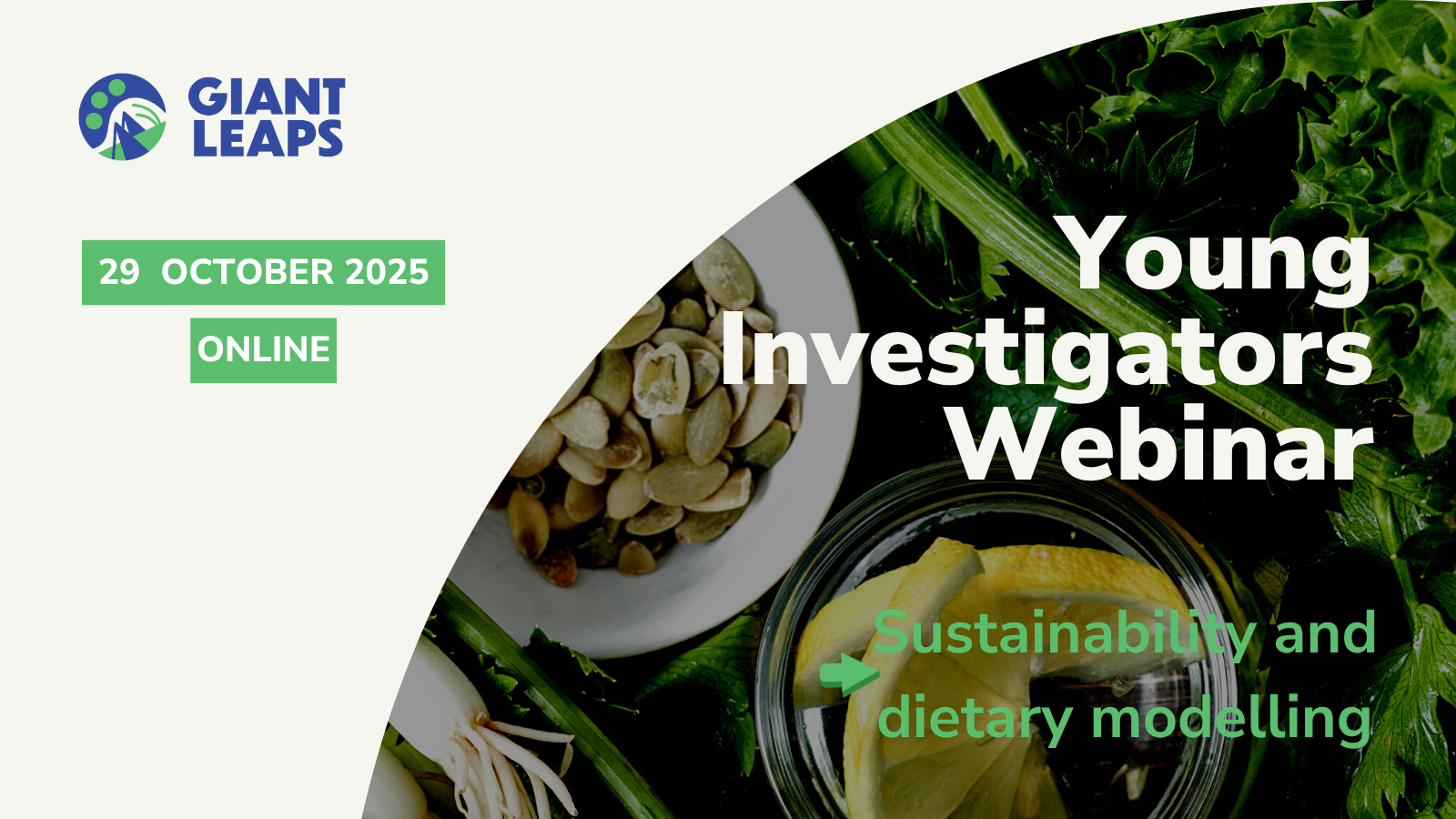Interview with Anne Wanders, Nutrition Science Manager at Unilever

Anne Wanders is a Nutrition Scientist and Nutrition Science Manager at Unilever’s Foods Innovation Centre in Wageningen. Her work supports Unilever’s commitment to helping consumers transition to healthier diets while reducing the environmental impact of the food chain.
With expertise in protein quality, the nutritional attributes of plant-based alternatives, and the long-term health effects of plant-based diets, Anne plays a key role in addressing consumers’ increasing concerns about the nutritional quality and health effects of these products. Her research focuses on ensuring that plant-based foods deliver balanced nutrient profiles without compromising dietary quality.
Anne is also an active contributor to the Giant Leaps project, where she works closely on Work Packages (WP) 4 on protein digestibility, 7 on dietary shift, and 8 on communication, dissemination, and exploitation of project results.
Notable highlights include a human study on the protein quality of fava beans in WP4 and a policy brief in WP8 summarizing insights from leading experts across the field. These efforts aim to advance scientific understanding of alternative proteins and inform the development of nutritious, sustainable food products that meet consumer expectations.
Below, Anne shares her insights on Unilever’s approach to plant-based innovation and the role of scientific research in shaping the future of nutrition.
Consumers across Europe are becoming more conscious of the environmental impact of their food choices, yet many are hesitant to adopt plant-based diets due to concerns about taste, texture, and nutrition. How does Unilever ensure that products like plant-based meat alternatives meet these expectations?
At Unilever, we aim to provide a variety of great-tasting plant-based products that make it easier for consumers to embrace healthier and more sustainable diets. Our products are formulated to deliver on taste, and texture while adhering to Unilever’s science-based nutrition criteria. These criteria include limiting nutrients such as salt, saturated fats, energy, and added sugars while providing positive nutrients like protein and fibre.
We also enhance our products with nutrients like iron, zinc, and vitamin B12 to address common gaps in plant-based diets. Additionally, our involvement in initiatives like the Giant Leaps project allows us to study digestibility, nutritional quality, and the long-term health impacts of plant-based foods. These insights guide the continuous improvement of our products to ensure they meet consumer expectations.
You’re deeply involved with Work Packages 4 and 7 in the Giant Leaps project. In WP4, you’re conducting a human study on the digestibility of faba bean protein. How do you see these findings shaping the future of plant-based products?
Work Package 4 is pivotal in addressing a critical gap in our understanding of alternative proteins—how food processing affects protein digestibility. While most current knowledge relies on in-vitro studies, this human study aims to provide real-world insights into how plant-based proteins are absorbed and utilized by the body.
By studying the digestibility of plant-based proteins under different processing conditions, we can fine-tune our product formulations to ensure they deliver optimal nutrition and align with consumer expectations. Furthermore, this research will help us develop more sustainable food processing techniques, benefiting both consumers and the environment.
Work Package 7 of the Giant Leaps project focuses on assessing the health and environmental impacts of dietary shifts toward alternative proteins. What role does this research play in shaping Unilever’s product development strategy?
WP7 assesses how reducing animal foods and increasing alternative protein consumption impacts health and sustainability. By conducting consumer surveys across Europe, we’ve identified preferred alternative protein sources and are now modelling how these dietary shifts affect dietary intakes and environmental footprints.
The insights from WP7 enable us to design plant-based products that resonate with European consumers’ dietary habits and preferences. More importantly, it helps us develop offerings that are not only sustainable and nutritious but also appealing and practical for everyday use.



